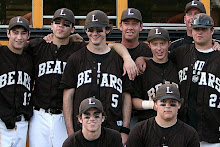
Gender Socialization is a vital part of the human growth process. Two of our major sources for learning how to act like a man or woman are our immediate family and the media. I went to an all-boys school for 10 years which had a clear cut interpretation of what makes a man, a man. My Father went to the same school, 30 years before me, and said that over time the school’s not as rigid as it once was on how a man is supposed to act. I agree with the book, that there are set roles for men, anything other than the norm is considered abnormal, or “irregular socialization”. The book also goes on to say that sometimes different agents of socialization can conflict. For example, my old school would try to teach us one way to act, but my parents wouldn’t back it up at home or would have a different theory. This can hurt a person’s development, but it’s important for us to have room to make adjustments in how we socialize our children based on sex and gender. I agree with the book in that it claims, “Once a gender is assigned, society expects individuals to act like ‘females’ and ‘males’.” I think boys need to be treated differently than girls both growing up and in adulthood. This may seem unfair to some people, but it’s how our society functions. I know in some cases I’ve tried to treat girls like a guy, and it just doesn’t work. I know it’s the same for girls, the sexes act differently around one another. Girls behind closed doors are completely different beings until a man is introduced, from my experience. In conclusion, gender socialization is extremely vital. Breaking away from tradition can hurt a person’s growth, but it’s also beneficial to society as a whole.


I like that you pointed out the "conflict" in acting certain ways once we have been socialized in one way and are then exposed to a new atmosphere where that behavior may clash. I think this is important to bring up, and important to think about. Sometimes it is good for us to be brought out of our element and be exposed to different behaviors and responses. When I was little, I loved playing with dinosaur's. My parents neither discouraged or encouraged this behavior. When I went to preschool and starting trying to make friends, that part of me was seen as "weird" or "boyish" by the girls in my class who (obviously) preferred dolls. It opened my mind up, even at such a young age, to playing new games like "house." I'm glad that I was exposed to a new group of people that had been socialized to act a certain way because it made me examine my own behavior. My conclusion was that my own unique self could and would play with both dinosaur's and dolls since I had a wide range of both female and male friends. I do agree that under certain circumstances it could hurt a person's development, but this was not the case in my small story.
ReplyDelete